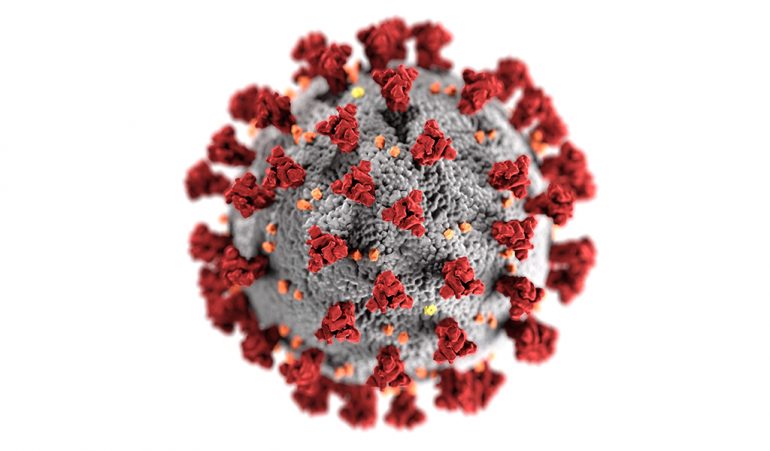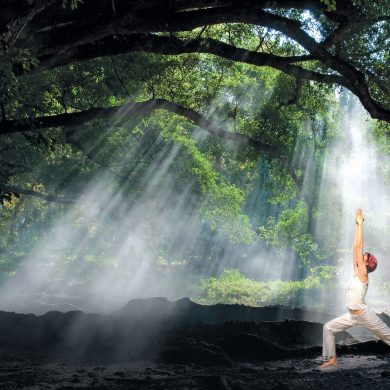Grief is our biggest teacher. It deepens us. When we lose someone we love, we tend to wonder about many things. Questions arise, such as: Did I do enough for the person who died? What do I want to do now with my one precious life? Where do people go after they die? Will I ever get over the loss of my loved one? What is the meaning of life? The list of BIG questions goes on and on.
The death toll of the coronavirus continues to grow exponentially, and hospitals are being overrun with the needs of those suffering from the impact of this chronic illness. Government sanctioned social distancing is in place, which includes closures of restaurants, health spas, nail and hair salons, to name only a few. Many businesses have had to shut down indefinitely until the virus is contained.
Millions and millions of Americans are now unemployed, living in fear of the unknown, isolated from loved ones. Those who continue to work remotely are living in isolation, uncertain of what’s to come. Healthcare workers, first responders, bankers, mail carriers, grocery store workers, pharmacists, and other essential employees are all going to work each day, risking infection to varying degrees.
What started out a few weeks ago as toilet paper hoarding, has turned into an apocalyptic nightmare. Woven into the uncertainty and trauma of the virus is multi-layered collective grief. Elizabeth Kubler-Ross in her work with terminally ill patients identified five stages of grief as denial, bargaining, anger, depression, and acceptance. These are non-linear and can be experienced to varying degrees for several years during a terminal illness and/or after a loss of any kind.
Grief occurs when dealing with any type of loss, not just physical death. Loss of career, relationship, identity, home, or even smaller losses such as a broken coffee cup with sentimental meaning are a few examples of where grief may show up. How then is collective grief affecting us during this coronavirus crisis? Let’s take a look at some of the layers, starting with the most obvious, and then moving into the deeper unconscious levels:
1. The loss of a loved one and/or the fear of losing someone from the virus.
COVID19 is a deadly virus and even though the majority of people who are infected with it will not die, or become extremely ill, there definitely are and will continue to be deaths from it. When someone we know is diagnosed with the virus or has been exposed to it, we fear to lose them. Even the imagined version of that happening can sadden and scare us. Some people are currently grieving loved ones suffering from terminal illnesses, some of whom have to postpone treatment while hospitals and physicians first deal with COVID-19 patients. Elderly people, having an increased risk of dying from the virus, are making the fear of losing them even more present. And of course, the unfortunate situation where someone does die from the virus clearly is deep grief.
- Fear of getting sick and possibly dying from the virus if infected.
Pictures in the media depict brutal images of people gasping for air and fighting for life. And again, even though the majority of people infected will not die or even have serious symptoms, the fear of being out of control creates fear and can activate old memories of loss and grief.
- The loss of control.
Related to #2 is the fear of being out of control. One of the deepest fears related to death is having no control over it. People buy insurance to protect themselves from hardships. Yet in this current COVID-19 situation there is no insurance, no vaccine, and no cure. People are compelled to face the out of control feeling as they witness the effects of this pandemic.
4. The loss of employment and/or income.
So many people are now unemployed. There is tremendous grief and loss related to those situations. Income, relationships, identity, benefits, and familiar connections have all been lost. Losses coupled with the fear of not knowing how one will survive or how long this will last, can be devastating. In this uncertainty is a deep sadness
- The loss of social connections and relationships.
This is happening everywhere. Children are unable to be with their friends at school. People are not able to connect in the workplace. Graduations are cancelled. Weddings are postponed. Sports events, concerts and possibly the Olympics are cancelled. And even with the ability to connect on-line, there are limits to social engagement. We are biologically wired for connection. This pandemic has required us to stop connecting in ways that are comfortable and familiar.
- The existential fear of death.
Many people fear death and don’t want to think about their own mortality. Even though it is inevitable that we will die at some point, no one knows exactly what happens after we die. Religions propose varying ideas, some of which are frightening, such as the idea of burning in hell. So-called near-death experiences have given glimpses into positive experiences that might happen after we die, such as being reunited with loved ones or being surrounded by white light. But ultimately death remains a mystery and can create tremendous fear of death and dying.
- Ancestral grief in our DNA.
We can’t go around grief; we have to go through it. When we don’t allow the full expression of grief and sorrow, it can get stuck in our cellular memory and lead to non-productive behaviors. Believe it or not, this could explain the toilet paper hoarding! Unresolved grief can lead to an unconscious fear of loss and a desire to control things, sometimes to the point of hoarding. Many of our ancestors were taught to move quickly through grief, and still today some families view crying as a sign of weakness. Studies indicate we are carrying 14 generations of ancestral trauma in our DNA, and mind-body experts point to the lungs as the area where one might get physically ill from unexpressed grief. Interesting how the coronavirus seriously affects the lungs. In the words of William Shakespeare “The grief that does not speak whispers in the o’er-fraught heart, and bids it break.”
8. Loss of the authentic self from early trauma and shame.
The collective grief of this pandemic could potentially transform us. Like a butterfly prior to emerging from the cocoon, transformation requires being still in the unknown. If we try to force a butterfly out of a cocoon too soon, it will die. Yet, the butterfly has within it imaginal cells that know exactly what it is to become. Give yourself permission to grieve through these troubling times.
If you or your loved ones are feeling any of the stages of grief, be extra compassionate with yourself and each other. There is no way to go around grief; you have to go through it. Since grief is hard to understand, it might be helpful to pay attention to your body sensations. Are you feeling extra tired? Do you want to cry? Is your stomach upset? Do you feel extra tense? These are just a few examples of body sensations to be aware of as you bring compassion to yourself and others. Since grief is non-linear you may move in and out of these stages periodically without quite understanding the why, when or how of it all. Be patient with the process.
Since the nervous system often experiences grief as a threat to emotional safety, an important thing to do is get your body into present moment safety. And since this pandemic is causing fear to surface in general, these ABCs of emotional safety can be helpful:
- Acknowledge feelings:All feelings are okay. All behavior isn’t. Give yourself permission to feel what you are feeling without judgment or talking yourself out the feelings.B. Breathe: When we are in a stressful situation, we tend to take shallow breaths. This doesn’t allow enough oxygen to get to the brain and the nervous system. The body needs the oxygen to help regulate the emotion. Deep belly breaths can help to calm the nervous system. If you have the virus and find it hard to breathe, simply pay attention to the breath as best you can. Don’t force it.
- Use one or more “C” shovels: Curiosity: Ask questions. The word curiosity can be traced back to the Latin root cura — meaning care and concern. Imagine yourself as a young child, full of wonder and awe. Ask questions. Never make assumptions about the situation. Be curious. Courage: Be Brave. The word courage can be traced back to the Latin root cor — the same root as the word heart (coronary). Take a deep breath and ask your heart what it wants in this situation. How can you be brave and face the situation? Compassion: Let love lead. The word compassion can be traced back to the Latin root com –meaning with or together, and pati meaning to suffer. Having empathy and compassion for self and others tames the fear a bit and helps love come to the forefront. Connection: Come together. The word connection can be traced back to the Latin root com— meaning together and nectere meaning to bind or tie. We are biologically wired for connection. Take a deep breath and connect to yourself. Give yourself permission to be with YOU. Then ask yourself what you can do to connect to the other(s) involved.
One thing I know for sure is that many of us will be asking at least one or more of the big questions as we continue to social distance and slow down the pace of our “normal” life. Maybe we won’t find any answers, but asking the questions may be the important part. They certainly will deepen us.
In the words of the poet Rainer Marie Rilke “Be patient toward all that is unsolved in your heart and try to love the questions themselves, like locked rooms and like books that are now written in a very foreign tongue. Do not now seek the answers, which cannot be given you because you would not be able to live them. And the point is, to live everything.”







